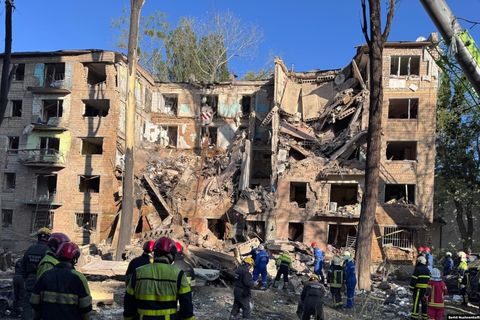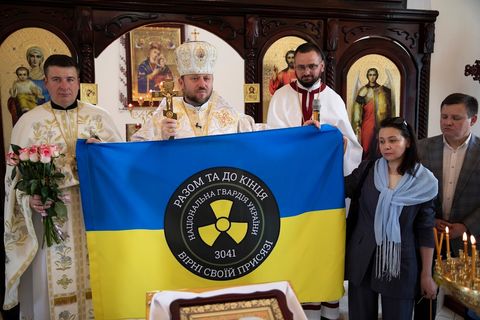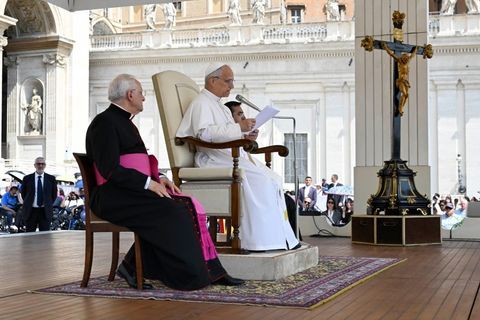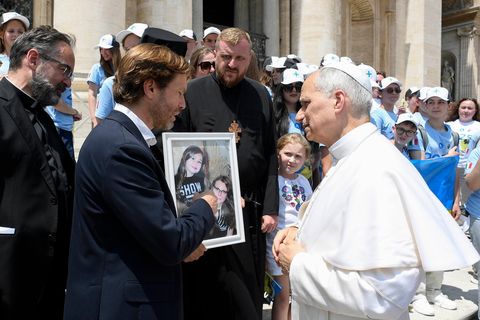I Understood Why People Go Crazy and Commit Suicide, But Prayer Gave Me Strength — Father Bohdan Geleta
About two months ago, on June 28, a prisoner exchange resulted in the return of UGCC priests, Redemptorist Fathers Bohdan Geleta and Ivan Levytsky, from Russian captivity. They were arrested on November 16, 2022, in the then-occupied Berdiansk. For more than a year and a half, there was almost no information about them.
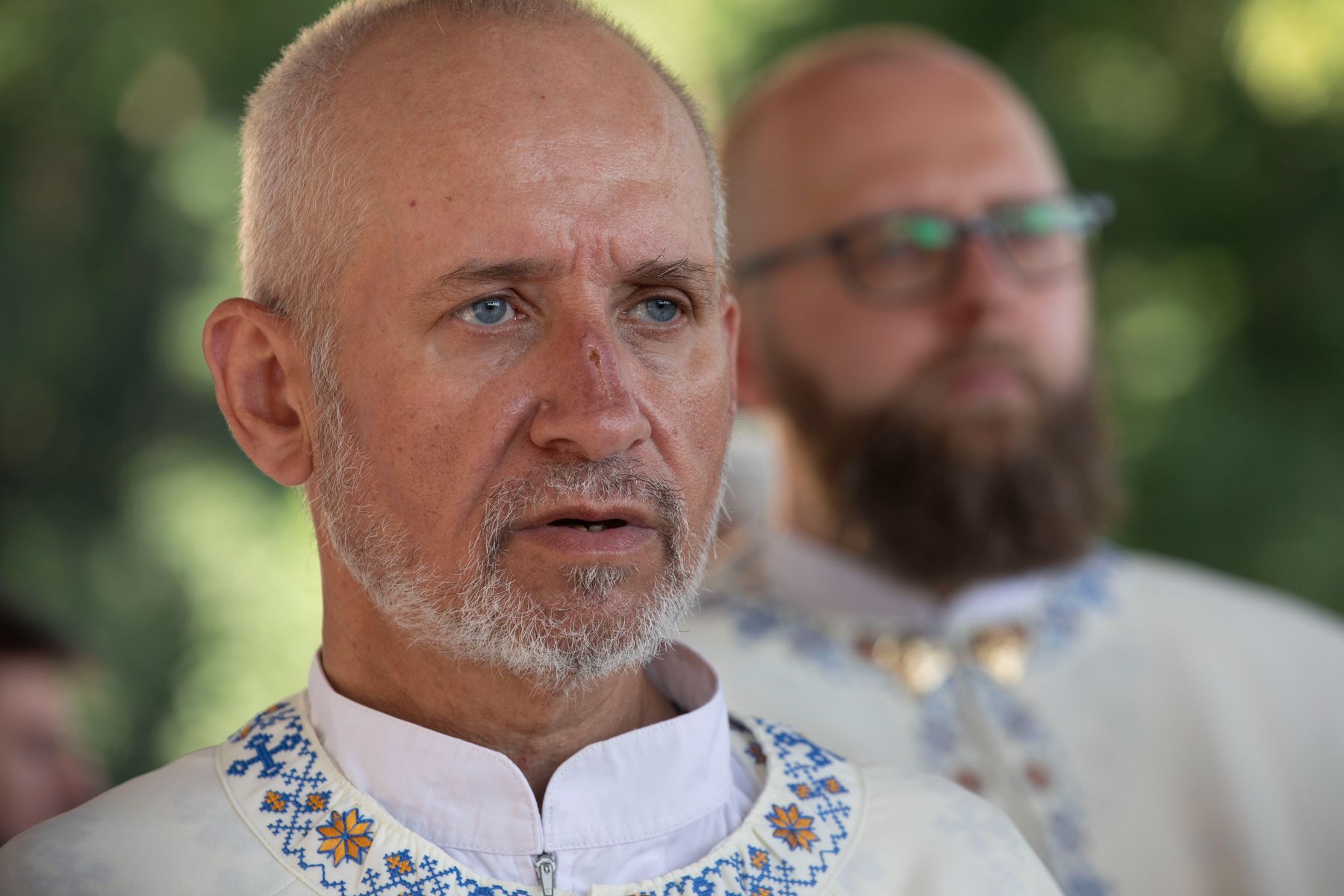
Father Bohdan Geleta at the Liturgy in Zarvanytsia during the All-Ukrainian pilgrimage, July 14, 2024, photo by: UGCC Department for Information
In his first interview after release, given to Zhyve Television, Fr. Bohdan Geleta spoke about what motivated the fathers to stay in the occupied city, what supported them during their captivity, and how they managed not only to survive but also to help those around them.
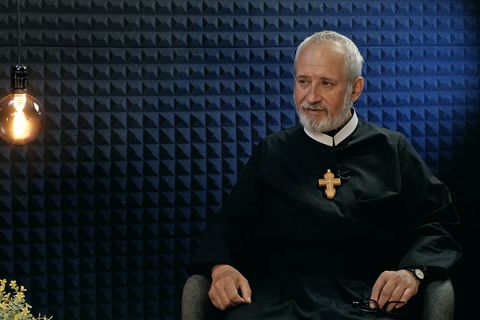 Read also:
Read also:
Faith in times of trial: Father Bohdan Geleta on Russian captivity and long-awaited freedom
“When the war started, for the first week Berdiansk seemed to have died out, as in science fiction movies, when some global catastrophe occurs,” — Fr. Bogdan recalls. — You walk through the city— there are no people, only wind and leaves on the streets. And then a week later, refugees began to arrive, traveling from Mariupol through Berdiansk to join a group in Berdiansk that was heading to Zaporizhzhia, to free Ukraine. We hosted several of them at the monastery. What they told us also inspired us to stay here, to help our people not only with prayer, not only with the Liturgy, but with words, with some material supplies, to provide some social service.”
The priest says that although most of the UGCC parishioners left, believers of other denominations and those who considered themselves non-believers came to them — all those who were looking for salvation, support, and a word of hope. “They went with Father Ivan to pray in the city center, prayed the rosary by the sea. This prayer occurred every day — for peace, for Ukraine. I believe that these people, even without us, continued to pray in this intention.”
In the fall, they were arrested, which, according to Fr. Bohdan, did not come as a surprise. He thought that they would come for them at night, but they came during the day, on November 16, when he had just returned from a funeral. Both fathers were accused of “violating the rules,” of not having permission from the authorities to pray, and of being priests of the UGCC.
“For them, we are a sect that has split from Orthodoxy, because only they, the Russian Orthodox, truly praise God, but at the same time beat people, can you imagine? This is such religious fanaticism, a historically formed stance that has not changed in hundreds of years. Just as the belief that the Ukrainian Greek Catholic Church, and us, the priests of this Church, should be eradicated and isolated from society, has not changed.”
Then came the torture chambers, interrogations, and the detention center. Eventually, the fathers were told that weapons were found in their church and that they were facing a Russian court and 25 years in prison.
“It was colony No. 77 in Berdiansk,” says Fr Bohdan, “We were held there for about five months separately from each other. I was placed in solitary confinement, and they put a speaker with music there. Soviet songs were blaring from it all day long. I realized then how a person goes crazy and why they commit suicide—I realized what suicide is. But the Lord God helped me, gave me strength through prayer. God, Jesus Christ, Mary, and the angels were present with me then. Prayer was my salvation. Although it seems to me that if I had another year or even less, everything would have gone into decline physically. But the Lord God works in a different way—He wants us to witness.”
From Berdiansk, the fathers and three other prisoners were transported to the Horlivka colony, where they spent another 10 months. There were approximately 1,800–2,000 prisoners of war there.
“In Horlivka it was terrible, cruel. I was hardly beaten during the reception, and Father Ivan was beaten so violently that he lost consciousness twice,” says Fr Bohdan. “Then the everyday life of prisoners of war began. They are very much abused there. Both the Azovs and the Navy, and all branches of the military were in this colony.
We had the opportunity to meet many people. They confided in us a lot, looking for help, internal and spiritual… There were a lot of young guys. I was surprised that 21–22 year olds have been in prison for up to 2 years. Those who fought for a week and were captured have been there for 3 years…
… It is impossible to get used to torture. I was astonished at how people endure it without God, without praying. I came to the conclusion that people still believe in something, hope for something. And they did: some hoped for their relatives, some were driven by hatred… There were a lot of Azov people, about 400 people. They were mocked the most. We were given the same clothes, they were given different ones to make them stand out in the crowd. It was just horrible!
… Speaking of prayer and the feeling of God in those circumstances, it is difficult to define and explain. A person simply feels a surge of joy on a scale that is impossible to describe. Because this is not a handful of people, but the whole Church, this is the glory of the Lord, this is infinity. It is a great, great joy to dwell in this immensity, to be a grain of sand and to realize that God knows about you, this grain of sand, cares about you and wants to make you an instrument of love in various life situations. We have to be ready to help someone to take the path of salvation.
… I can confess to you that being here, at liberty, a rather large part of me still remained there, in captivity. And this part will probably be there for a very, very long time. For as long as I live on this earth, it will be there, with those people, and will accompany me until the end of my life.”
The UGCC Department for Information
